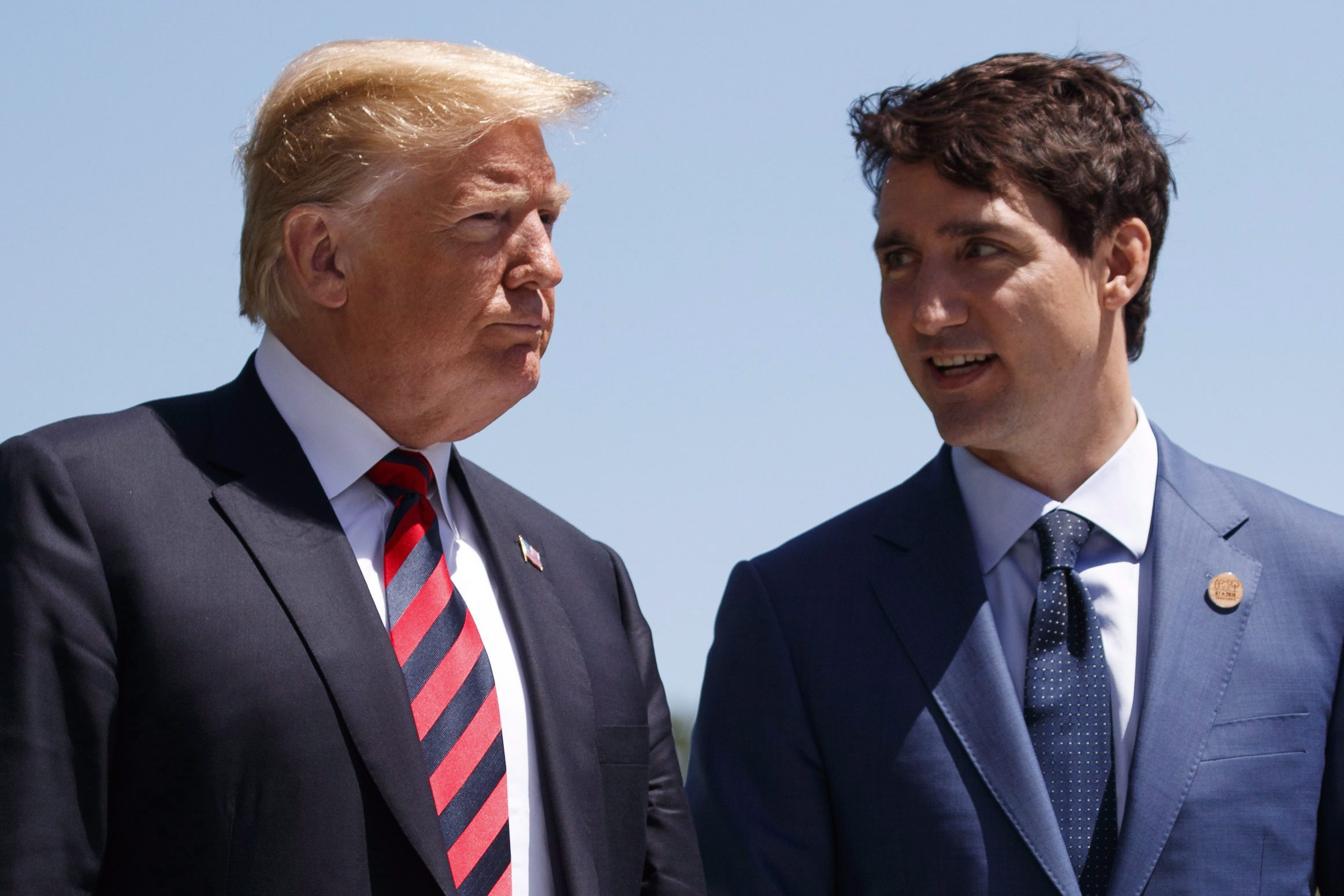USMCA, the renewed and renamed pending trade agreement, between the United States, Mexico and Canada took 13 months of wrangling to negotiate.
The official signing of the agreement was to take place to accommodate outgoing Mexican President Enrique Pena Nieto, by December 1st, 2018.
The signing ceremony is now set to take place Friday November 30th.
But Canada’s Prime Minister Justin Trudeau will not attend the event if the steel and aluminum tariffs imposed on Canada are still in place, and will send another representative instead.
Some high ranking Mexican officials have also expressed reservations about participating, in light of the same tariffs imposed on their steel and aluminium sector.
Ian Lee, an associate professor at the Sprott School of Business in Ottawa, says for Justin Trudeau, entering into an election year in 2019, with these major trade issues brewing, it is a prudent move to skip the signing.
Listen“I think now he doesn’t want to be seen as a “cheerleader” for it, and certainly going to a celebration while the tariffs are still on, still imposed on Canada, would be seen as celebrating and cheering an agreement that left the tariffs intact, and so that’s probably not good political optics and I think that that really explains why he has made that decision.”
“It’s a lukewarm endorsement I have, it could have been much worse”
And there is talk, from anonymous sources, that the final text of the agreement is posing problems for the Canadian delegation, as the words don’t match what the Canadians understood they were agreeing to.
Ian Lee says in the new climate of negotiating with the Trump administration, this is not unexpected.
“There may be almost, in the negotiation over the words, almost a secondary set of negotiations because one has to be very careful that the wording used doesn’t twist the meaning of what was negotiated in the negotiating room”

USMCA: In this June 8, 2018, file photo, President Donald Trump talks with Prime Minister Justin Trudeau during a G-7 Summit welcome ceremony in Charlevoix, Canada. Canadians were stunned by the repeated broadsides from what had long been their closest ally and some have even begun boycotts. It started with Trump’s attacks on Canadian dairy farmers, then Washington slapped tariffs on Canadian steel, citing national security. Then it was a disastrous G-7 Summit in Quebec. (AP Photo/Evan Vucci, File)
While the retaliatory tariffs imposed by both Mexico and Canada are causing hardships for many of the other sectors, from farmers to beer makers in the United States, Ian Lee says it is unlikely Trump will drop the tariffs due to the political mileage and credit he is able to garner from them.
“He is in the fight of his life for re-election for only 24 months from now,” Lee says.
But with a new Democratic majority in the House of Representatives in the United States, it remains to be seen just what the next move will be, in the ongoing trade saga.







For reasons beyond our control, and for an undetermined period of time, our comment section is now closed. However, our social networks remain open to your contributions.